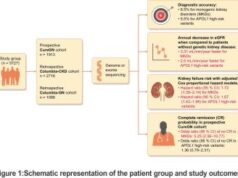A clinical pharmacist, Dr. Charles Nwako has declared that wrong timing in drug administration was the reason some antibiotics don’t work effectively in some patients the human body.
In a recent research article, he disclosed that some patients are guilty of skipping their medication arbitrarily.
He stated that “Some drugs must be taken at a particular or fixed time before they work. If taken at the wrong time, they may not work optimally. For example; some antibiotics are time or concentration-dependent in order to work optimally.
“Examples of such time-dependent drugs include Penicillins like Ampicillin/Cloxacillin; Cephalosporins like Cefuroxime; Macrolides like Erythromycin and Lincosamides like Clindamycin”.
Nwako noted that the drugs must maintain their concentrations above the minimum inhibitory concentration of the pathogens for up to or above 50 per cent of the dosing intervals to work optimally.
He also explained that some medications that are concentration-dependent drugs like ciprofloxacin, aminoglycosides typified by gentamycin and metronidazole must have their concentrations up to or greater than 10 times the minimum inhibitory concentration of the microbes.
“These antibiotics should be administered at some dosing intervals which can only be determined by the pharmacist. On the other hand, some non-antibiotic drugs should only be taken at a specific time of the day to produce optimal therapeutic outcomes.
“For instance, all “water pills” like hydrochlorothiazide should be taken in the morning to avoid a nocturnal increase in urination which disrupts sleep and worsens high blood pressure,” he said.
While observing that some anticholesterol drugs are also administered wrongly, the clinical pharmacist stressed that such drugs should only be taken at midnight for active age groups and the elderly.
“This is simply because blood lipids are mainly produced at sleeping time. Some drugs are taken by some patients when necessary. This is why the pharmacist is trained to direct you,” he said.











